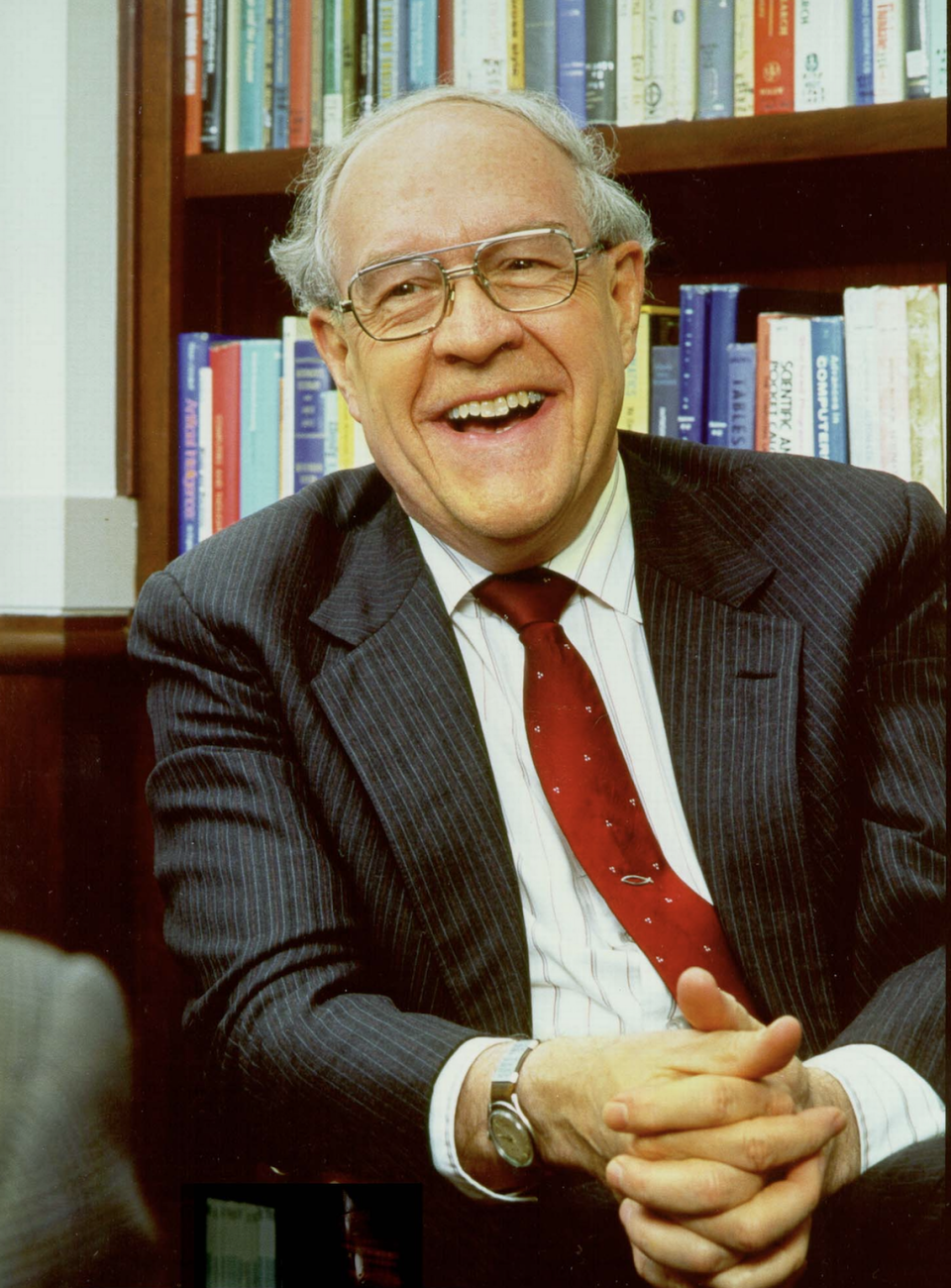Computer science pioneer Fred Brooks leaves legacy at IBM, UNC and in our everyday lives
1964 was a very busy year for Fred Brooks Jr.
As he was launching the computer science department at UNC-Chapel Hill, Brooks was also shuttling north to IBM’s campus in Poughkeepsie, N.Y., where he oversaw one of the most consequential computer developments of the era. The choices he made at IBM — among other things — helped pave the way for the word processors we use today.
He was only 33.
Brooks reflected on his time at Big Blue, both the good and the bad, in his seminal 1975 book “The Mythical Man-Month,” which many rank among the most influential writings on computer science and workplace productivity. In 1999, Brooks won an A.M. Turing Award, computer science’s top honor, for “landmark contributions to computer architecture, operating systems and software engineering.”
He went on to teach and research at UNC for another 16 years. Today, the UNC Computer Science Department is housed in a building baring his name.
Brooks died on Nov. 17 at the age of 91 in Chapel Hill. Ken Brooks, his son, confirmed his father’s health had been worsening since a stroke last year.
At IBM, his efforts helped produce the IBM System/360 computer line, an array of models that ran on the same software, a breakthrough for the time. As project manager, Brooks decided the System/360 would operate on an eight-bit byte, rather than a six-bit byte, which was the standard at the time.
His work at IBM is just part of his legacy that ripples far beyond Research Triangle Park, said Timothy Humphrey, IBM’s Senior State Executive for North Carolina, in a statement to The News & Observer.
Brooks’ “influence and achievements, including his management of the IBM System/360 family of computers, will continue to resonate both locally in the Research Triangle and worldwide in universities, research laboratories of technology companies, and the minds of countless computer scientists and software engineers who aspire to follow in his footsteps,” Humphrey wrote.

IBM needed him back
Fred Brooks grew up in Greenville, N.C., and graduated from Duke University with a degree in physics. He went on to get his Ph.D. in applied mathematics at Harvard University, where he met his wife, Nancy Greenwood Brooks. They had three children.
He was a proudly religious man who taught Sunday School at Orange United Methodist Church in Chapel Hill for half a century. Along with Nancy, he helped start the Trinity School of Durham and Chapel Hill, a K-12 Christian school, and the North Carolina Study Center, a Christian Life center near the UNC campus.
“Because he’s a man of peace, he was able to bring peace to a lot of other people and to the whole culture of the (UNC) department,” Ken Brooks said.
After Harvard, Brooks moved to upstate New York to work at IBM, where he might’ve spent his entire career if not for a lecture he gave at UNC in 1962 titled, “10 Research Problems in Computer Science.” Brooks’ words inspired the university to form a computer science program, which it initially called “Information Science,” and asked Brooks to chair.
Brooks jumped at the opportunity to live closer to his family. But soon, IBM wanted him back to manage System/360’s software development, which had hit some roadblocks.
“(IBM) did some finagling and offered a substitute to help teach some of his classes so that he could be in Poughkeepsie a lot for that year,” his son said.
‘Brooks’ Law’
Brooks’ return to IBM was effective but not without stress. Reflecting on his final year at the company, he authored “The Mythical-Man Month,” in 1975, which looked at how managers often compound delays in projects by adding more people to the task.
“Adding manpower to a late software project makes it later,” he wrote, defining what became known as “Brooks’ Law.”
Another oft-quoted line in the book captures his philosophy that some work projects inherently can’t be sped up: “The bearing of a child takes nine months, no matter how many women are assigned.”
Ken Brooks followed in his father’s footsteps by earning a Ph.D. in computer science.
“I don’t meet anyone who doesn’t know my father’s book in the field,” said Ken Brooks.
But Fred Brooks had no illusions that all managers started adhering to his law.
“Some people have called the book the ‘bible of software engineering,’” he told CNN in 2005. “I would agree with that in one respect: that is, everybody quotes it, some people read it, and a few people go by it.”
This story was produced with financial support from a coalition of partners led by Innovate Raleigh as part of an independent journalism fellowship program. The N&O maintains full editorial control of the work.
Open Source
Do you enjoy Triangle tech news? Subscribe to Open Source, The News & Observer's weekly technology newsletter and look for it in your inbox every Friday morning. Sign up here.
